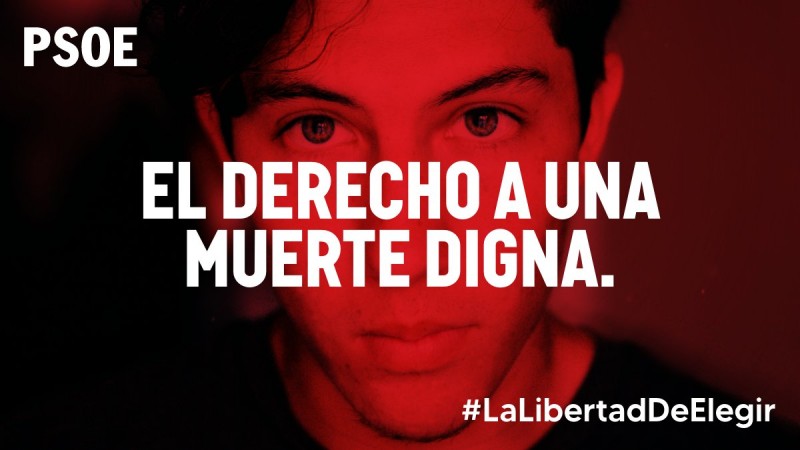ARCHIVED - Spain becomes the seventh country in the world to permit voluntary euthanasia
Terminally ill patients are allowed to request assistance in ending their own lives

Image: Passing this bill has been one of the principal aims of Spain's socialist coalition government under the theme of "the right to a dignified death" and "the freedom to choose".
History was made in the Spanish parliament on Thursday 18th March as members of the Congreso de los Diputados voted to finally pass legislation which makes Spain just the seventh country in the world to legalize euthanasia in certain circumstances.
The process of passing the euthanasia bill was delayed by the coronavirus pandemic since it was first approved in Congress in December 2020, at which point it was expected that it could become a legal reality by April 2021. The delay is now over, though, and the new law specifies that terminally ill patients will be permitted to receive assistance in ending their lives if a series of conditions are met.
Among these conditions it is stipulated that the patient must request the procedure at least twice on separate occasions at least 15 days apart, voluntarily and having been made fully aware of their medical diagnosis and prognosis. The patient must also be fully informed not only of the procedure involved in euthanasia, but of alternative end-of-life care options including palliative treatment.
The medical condition suffered must be serious, incurable and the cause of constant and “intolerable” mental or physical suffering, or chronic and disabling pain which affects the patient’s physical and mental independence. In addition, it must be established that there is no possibility of the condition of the patient being improved or cured.
In cases involving completely incapacitated patients, including those who are unconscious or in coma, a written document such as a will, signed when the patient was in a fit state to do so while aware of its contents, must be produced, showing explicitly the patient’s desire to be given euthanasia.
The entire procedure must be supervised and certified by a senior doctor who in turn must receive the opinion of another consultant doctor, and the relevant reports and decisions will need to be ratified by the Evaluation and Monitoring Committees which are to be established in each of Spain’s 17 regions.
Once the procedure of euthanasia has been fully authorized it can be administered either in hospital or at the patient’s home, always in the presence of the medical staff supervising it. Medical staff are to be allowed to opt out of participating as conscientious objectors.
It goes without saying that the initial parliamentary debate was not without controversy, and José Ignacio Echániz of the PP party described the Bill as “unconstitutional, inopportune, frivolous and unfair”, concluding that the new law is “a defeat for everyone”, while the Vox party view it as a licence to sign death sentences. However, the then Minister of Health, Salvador Illa, described it as a victory for “common sense and humanity”.




























